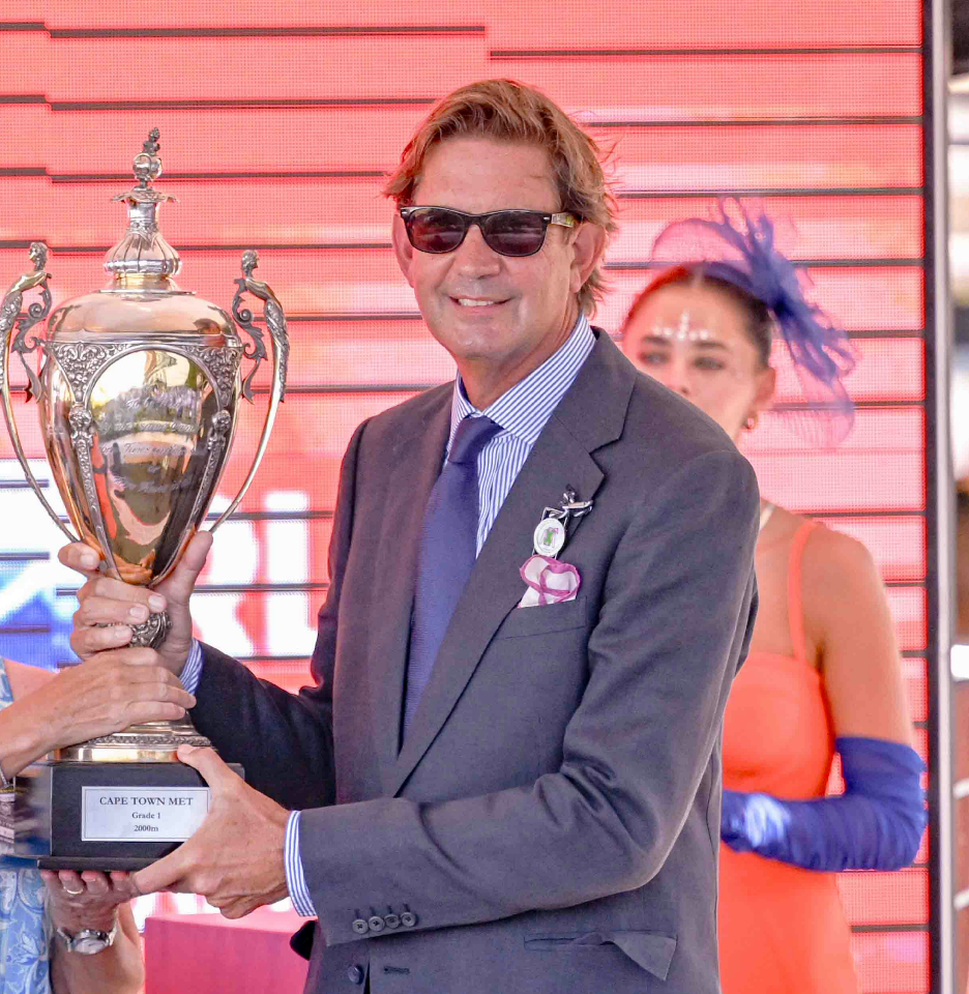
Nic Jonsson, prominent South African racehorse owner and head of the multinational company Jonsson Workwear, delivered a stinging critique of the country's racing media during his post race interview on national tv. His comments centered around what he described as inaccurate and poorly researched reports regarding the naming of his horse, Eight On Eighteen, the winner of the Cape Town Met.
“There was quite a lot written about this horse recently,” Jonsson said, “and really, the journalists are incredibly poor at their jobs. The stories were unfactual. It’s a matter of picking up the telephone to ask for the correct version, and none of them do, which is extraordinary. The nonsense written about how this horse got its name is absurd. Yes, it was named after me scoring an eight on the 18th hole at Leopard Creek, but the lead-up to it, as reported, was completely wrong.”
The Bigger Picture: Is Jonsson Right?
Jonsson’s criticism shines a harsh light on an ongoing issue within South African racing journalism: a lack of thorough reporting and reliance on unverified sources. It’s no secret that many outlets, constrained by shrinking budgets and limited resources, often recycle content or rely on second-hand information. In doing so, they risk losing credibility and failing to serve the industry they aim to represent.
But is Jonsson’s public takedown of the media justified? On one hand, the industry needs stakeholders like him to hold the press accountable for their reporting. On the other, racing journalism is a dwindling profession, and this public lashing may further demoralize those still committed to the craft.
The State of Racing Journalism
Racing journalism in South Africa, much like the industry it covers, is facing significant challenges. With fewer experienced reporters and declining pay scales, it has become increasingly difficult to attract and retain talent. The result? A vicious cycle of superficial coverage and diminishing public interest.
However, Jonsson’s comments also point to a larger truth: racing cannot thrive without accurate, compelling storytelling. The media plays a pivotal role in connecting the sport to fans, building narratives around horses, jockeys, and owners, and ultimately sustaining public engagement.
A Dying Industry Needs a Revival
The challenges facing South African racing extend far beyond media coverage. As the sport battles shrinking revenues, ownership concentration, and rising costs, it seems the only financially stable players left are the operators and bookmakers. For everyone else, participation is becoming a labor of love, rather than a sustainable career or business.
Racing, like any sport, depends on the media for its survival. Without proper coverage, the stories that captivate audiences—triumphs, rivalries, and behind-the-scenes insights—go untold. This silence only accelerates the sport’s decline.
A Call to Action
Jonsson’s comments may have ruffled feathers, but they also present an opportunity. Instead of solely criticizing the media, powerful figures like him could use their influence to drive change. Investing in the industry’s storytelling infrastructure could be a game-changer.
Possible solutions include:
Journalism Training Programs: Develop initiatives to train the next generation of racing journalists, ensuring they are knowledgeable and passionate about the sport.
Grants for In-Depth Reporting: Fund investigative or feature-length stories that go beyond surface-level coverage.
Media Partnerships: Encourage collaboration between owners, operators, and media outlets to create an ecosystem where accurate and engaging stories can thrive.
If stakeholders like Jonsson were to take proactive steps in this direction, it would not only improve coverage but also elevate the sport’s image and attract new audiences.
Jonsson’s frustration with the media is understandable, but the solution to racing’s broader problems cannot rest on criticism alone. Instead, his remarks should spark a larger conversation about the state of the industry and the need for collaboration between stakeholders and the press.
Racing in South Africa is at a crossroads. Without strong and accurate storytelling, it risks fading into obscurity. But with the right investment in media and communication, the sport could reclaim its former glory and inspire a new generation of fans. For that to happen, figures like Jonsson must lead the charge—not just with their words, but with meaningful action.
Image: Cape Racing
|